Awards News
//
//
June 13, 2022
//
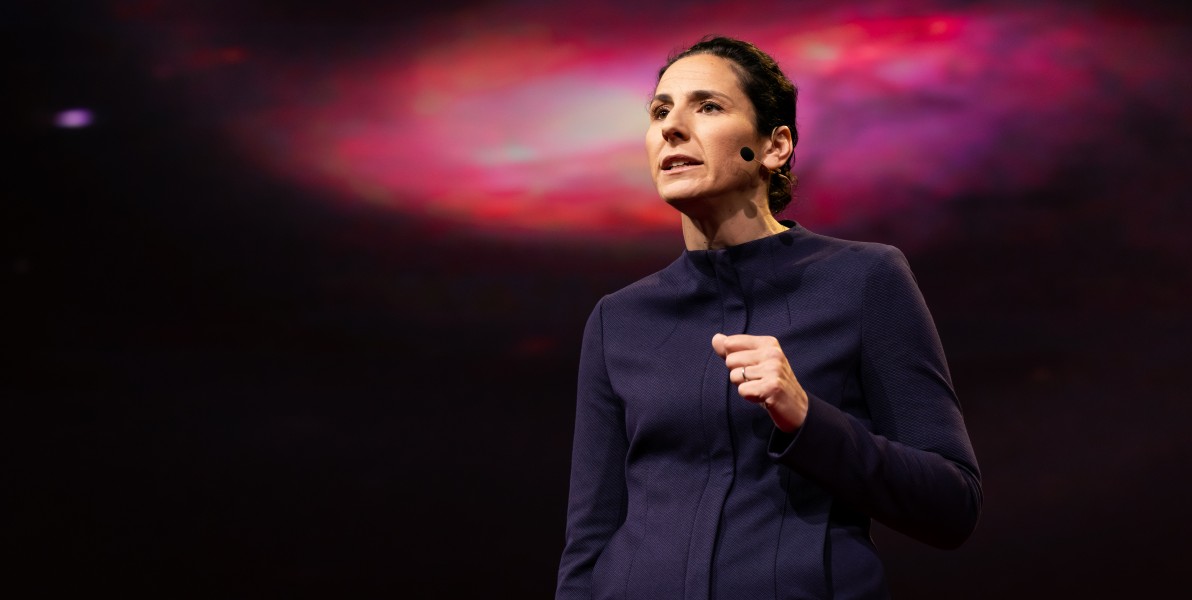
The Solvay Institutes have selected Professor Juna Kollmeier of the Canadian Institute for Theoretical Astrophysics (CITA) and the University of Toronto as its 2022 Jacques Solvay International Chair in Physics. Prof. Kollmeier is the first scientist from Canada to receive this honour, whose past 16 recipients have included two Nobel Laureates.
Prof. Kollmeier is the Director of CITA and…
Read more »
Featured News
//
//
May 13, 2022
//
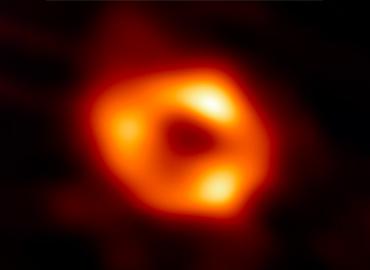
This week, astronomers revealed the first image of the supermassive black hole at the heart of a galaxy not so far, far away — our home galaxy, the Milky Way.
Scientists had previously seen stars orbiting around something invisible, compact, and very massive at the centre of the Milky Way. Known as Sagittarius A* or Sgr A*, this object was strongly believed to be a black hole.
T…
Read more »
Featured News
//
//
March 31, 2022
//
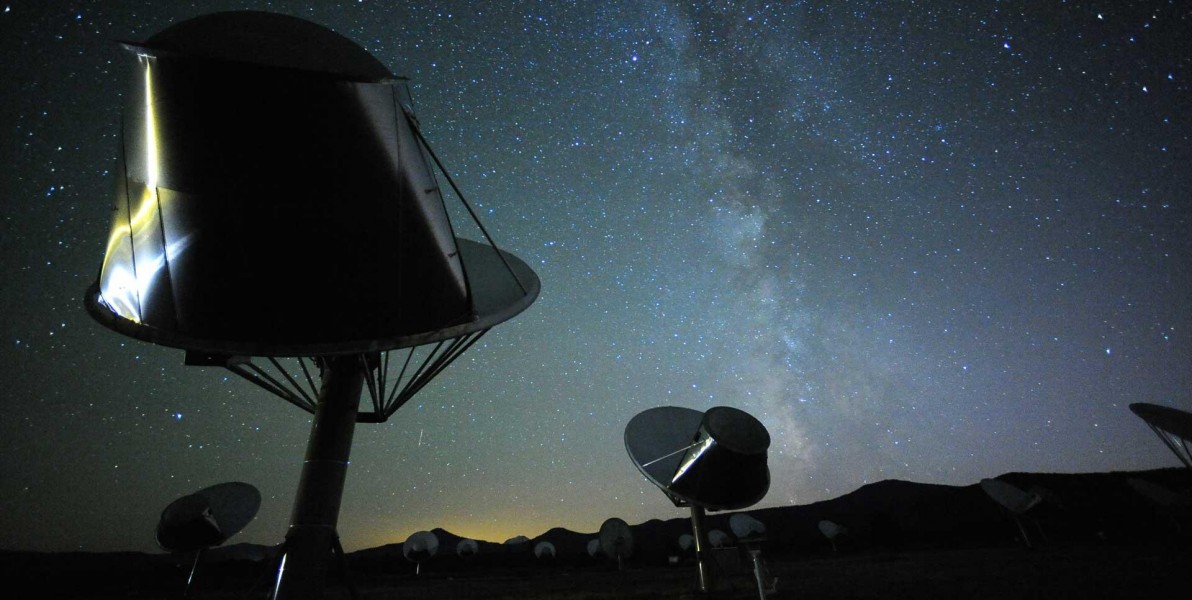
A decade of fearless innovation is opening a new window to the universe
– Prof. Ue-Li Pen, Canadian Institute for Theoretical Astrophysics
In the quest to identify the origins of one of astronomy’s biggest mysteries – fast radio bursts (FRBs) – Canada’s world-renowned telescope, the Canadian Hydrogen Intensity Mapping Experiment (CHIME), is getting backup.
Supported by…
Read more »
Featured News
//
//
February 8, 2022
//
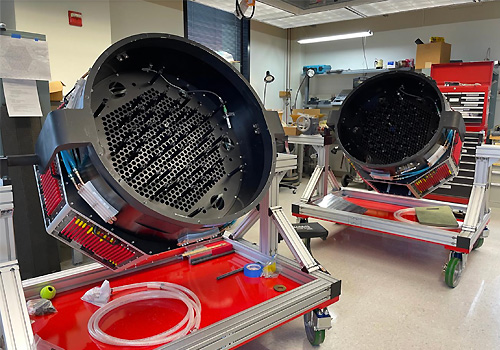
Thanks to a breakthrough robotic innovation, an international collaboration which includes the University of Toronto has advanced the Sloan Digital Sky Survey (SDSS), a 20-year-long research project that has been investigating the structure and evolution of our cosmic home, the Milky Way Galaxy.
A new Focal Plane System (FPS) is at the heart of the fifth phase of the project, SDSS-V. The FPS…
Read more »
Featured News
//
//
February 2, 2022
//
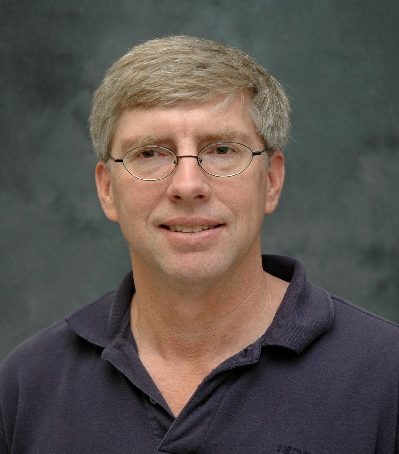
The Heineman Foundation, American Institute of Physics and American Astronomical Society announce Norman Murray, professor at the Canadian Institute for Theoretical Astrophysics, University of Toronto, as the winner of the 2022 Dannie Heineman Prize for Astrophysics.
The Heineman committee selected Murray “for his deep theoretical insight into an exceptionally broad range of…
Read more »
Featured News
//
//
September 8, 2021
//
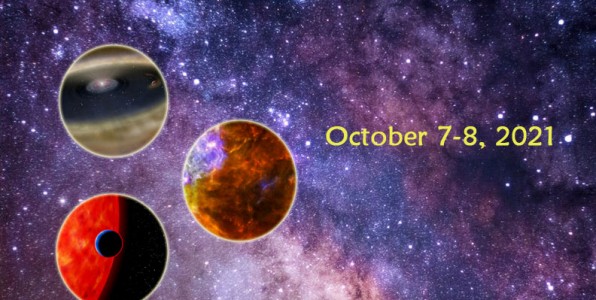
The CITA Jamboree is traditionally an annual event with short presentations from all CITA faculty, postdocs, and grad students describing their research. It is an opportunity for incoming postdocs and students and anyone who wants to learn more about CITA and the research done here.
This year we will be hosting a National CITA Jamboree in Toronto for all CITAzens to share their research. Pleas…
Read more »
Featured News
//
//
September 7, 2021
//
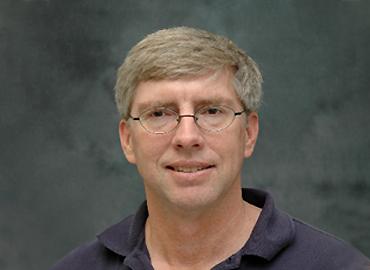
Norman Murray is a world-renowned Canadian astrophysical theorist whose high impact work is imbued with powerful physical insight, creativity and technical skill expressed over an amazingly broad spectrum of astronomical problems. He has made seminal contributions to our theories of planet formation and evolution, chaos in the solar system, helioseismology, the physics of black ho…
Read more »
CHIME Featured News
//
//
June 9, 2021
//

Written by Jennifer Chu, MIT News Office
Scientists with the CHIME Collaboration, including University of Toronto researchers at the Dunlap Institute for Astronomy and Astrophysics, David A. Dunlap Department of Astronomy and Astrophysics, Canadian Institute for Theoretical Astrophysics and Department of Physics, have assembled the new signals in the telescope’s first FRB catalog,…
Read more »
Awards Featured News
//
//
June 9, 2021
//
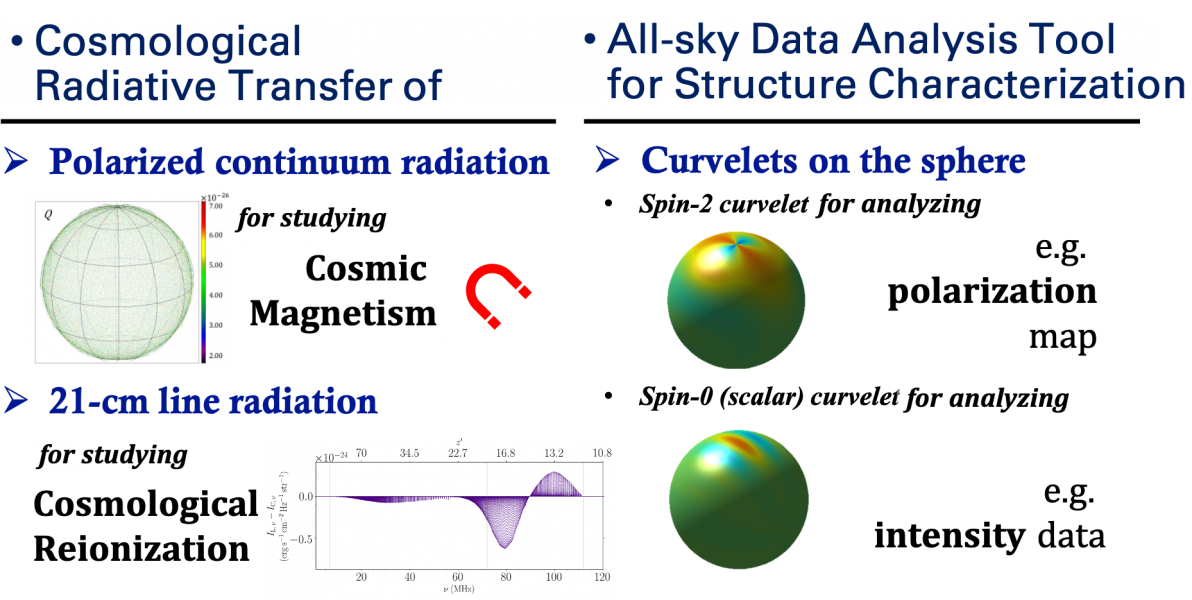
Announced today, CITA fellow Dr Jennifer Y. H. Chan was awarded the 2020 Michael Penston Prize from the (UK) Royal Astronomical Society for her PhD thesis, “All-sky Radiative Transfer and Characterisation for Cosmic Structures”. This Prize is for the best doctoral thesis in astronomy and astrophysics in the UK.
“It is a privilege to do science research, and I am deeply honoured that…
Read more »
Featured News
//
//
May 31, 2021
//
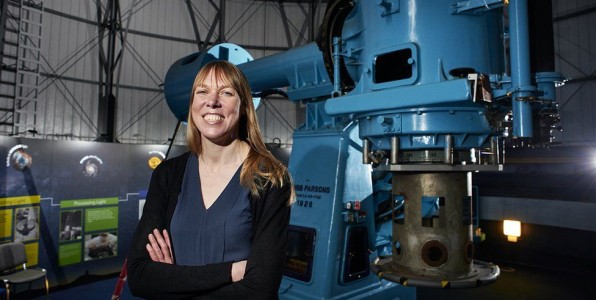
Astrophysicist Catherine Heymans, former CITA National Fellow, has become the first woman to be appointed Astronomer Royal for Scotland since it was created almost 200 years ago. Heymans, who is based at University of Edinburgh, will become the eleventh person to hold the role after it became vacant in 2019 following the death of the incumbent John Campbell Brown, who held the position…
Read more »









